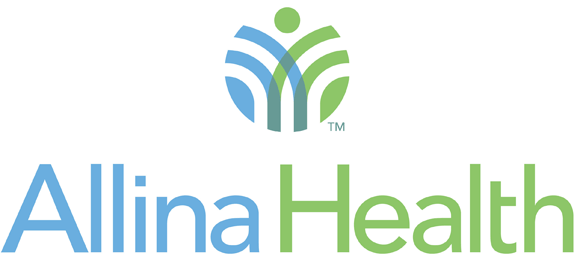Akt Inhibitor MK2206, Bendamustine Hydrochloride, and Rituximab in Treating Patients With Relapsed Chronic Lymphocytic Leukemia or Small Lymphocytic Lymphoma
| Status: | Active, not recruiting |
|---|---|
| Conditions: | Blood Cancer, Lymphoma |
| Therapuetic Areas: | Oncology |
| Healthy: | No |
| Age Range: | 18 - Any |
| Updated: | 4/21/2016 |
| Start Date: | September 2011 |
Phase I/II Study of the Combination of Bendamustine, Rituximab and MK-2206 in the Treatment of Relapsed Chronic Lymphocytic Leukemia and Small Lymphocytic Lymphoma
This phase I/II trial studies the side effects and best dose of v-akt murine thymoma viral
oncogene homolog 1 (Akt) inhibitor MK2206 when given together with bendamustine
hydrochloride and rituximab and to see how well they work in treating patients with
refractory chronic lymphocytic leukemia or small lymphocytic lymphoma. Akt inhibitor MK2206
may stop the growth of cancer cells by blocking some of the enzymes needed for cell growth.
Drugs used in chemotherapy, such as bendamustine hydrochloride, work in different ways to
stop the growth of cancer cells, either by killing the cells or by stopping them from
dividing. Monoclonal antibodies, such as rituximab, can block cancer growth in different
ways. Some block the ability of cancer cells to grow and spread. Others find cancer cells
and help kill them or carry cancer-killing substances to them. Giving Akt inhibitor MK2206
with bendamustine hydrochloride and rituximab may be an effective treatment for relapsed
chronic lymphocytic leukemia or small lymphocytic lymphoma.
oncogene homolog 1 (Akt) inhibitor MK2206 when given together with bendamustine
hydrochloride and rituximab and to see how well they work in treating patients with
refractory chronic lymphocytic leukemia or small lymphocytic lymphoma. Akt inhibitor MK2206
may stop the growth of cancer cells by blocking some of the enzymes needed for cell growth.
Drugs used in chemotherapy, such as bendamustine hydrochloride, work in different ways to
stop the growth of cancer cells, either by killing the cells or by stopping them from
dividing. Monoclonal antibodies, such as rituximab, can block cancer growth in different
ways. Some block the ability of cancer cells to grow and spread. Others find cancer cells
and help kill them or carry cancer-killing substances to them. Giving Akt inhibitor MK2206
with bendamustine hydrochloride and rituximab may be an effective treatment for relapsed
chronic lymphocytic leukemia or small lymphocytic lymphoma.
PRIMARY OBJECTIVES:
I. To assess the safety and maximum tolerated dose (MTD) of MK-2206 (Akt inhibitor MK2206)
in combination therapy with bendamustine (bendamustine hydrochloride)-rituximab in relapsed
chronic lymphocytic leukemia (CLL) or small lymphocytic lymphoma (SLL) patients. (Phase I)
II. To assess the rate of complete response (CR) of MK-2206 in combination with
bendamustine-rituximab in relapsed CLL or SLL patients. (Phase II)
SECONDARY OBJECTIVES:
I. To assess clinical efficacy of MK-2206 in combination with bendamustine-rituximab as
demonstrated by analysis of overall response rate (CR, complete response with incomplete
bone marrow recovery [CRi], clinical complete response [CCR], near partial response [nPR]
and partial response [PR]), duration of response, and treatment free survival.
II. To assess the toxicity profile of MK-2206 in combination with bendamustine-rituximab.
TERTIARY OBJECTIVES:
I. Evaluation of whether the established CLL prognostic factors (cluster of differentiation
[CD]38, CD49d, immunoglobulin heavy chain variable [IGHV], fluorescence in situ
hybridization [FISH] and zeta-chain-associated protein kinase 70 [ZAP-70]) predict responses
to the combination therapy of MK2206, with bendamustine-rituximab.
II. Minimal residual disease will be evaluated after treatment in patients who achieve a
clinical response; minimal residual disease (MRD) status will be explored in relation to
both the quality and duration of response.
III. Evaluation of the effects of the addition of MK-2206 to bendamustine-rituximab on B
cell receptor initiated, phosphoinositide 3-kinase (PI3K)/Akt downstream signal pathways,
apoptosis analysis and leukemic cell activation status, as well as multiple cytokine
profiles and key gene expression analysis with focus on leukemic cells.
IV. Evaluation of marrow stromal cells (MSC)-CLL biology including the effects of the
addition of MK-2206 to bendamustine-rituximab on CLL marrow stromal cell (MSC)
proliferation, migration and cytokine production, as well as the adhesion capacity between
MSC and leukemic cells.
OUTLINE: This is a phase I, dose-escalation study of Akt inhibitor MK2206 followed by a
phase II study.
Patients receive Akt inhibitor MK2206 orally (PO) on days 1, 8, 15, and 22 (days 1, 8, 15,
22, and 29 of course 1); rituximab intravenously (IV) on day 1 (day 8 of course 1); and
bendamustine hydrochloride IV over 30-60 minutes on days 1-2 (days 8-9 of course 1).
Treatment repeats every 28 days (35 days for course 1 and 84 days for course 6) for 6
courses in the absence of disease progression or unacceptable toxicity.
After completion of study treatment, patients are followed up every 3 months for 2 years and
then every 6 or 12 months for 3 years.
I. To assess the safety and maximum tolerated dose (MTD) of MK-2206 (Akt inhibitor MK2206)
in combination therapy with bendamustine (bendamustine hydrochloride)-rituximab in relapsed
chronic lymphocytic leukemia (CLL) or small lymphocytic lymphoma (SLL) patients. (Phase I)
II. To assess the rate of complete response (CR) of MK-2206 in combination with
bendamustine-rituximab in relapsed CLL or SLL patients. (Phase II)
SECONDARY OBJECTIVES:
I. To assess clinical efficacy of MK-2206 in combination with bendamustine-rituximab as
demonstrated by analysis of overall response rate (CR, complete response with incomplete
bone marrow recovery [CRi], clinical complete response [CCR], near partial response [nPR]
and partial response [PR]), duration of response, and treatment free survival.
II. To assess the toxicity profile of MK-2206 in combination with bendamustine-rituximab.
TERTIARY OBJECTIVES:
I. Evaluation of whether the established CLL prognostic factors (cluster of differentiation
[CD]38, CD49d, immunoglobulin heavy chain variable [IGHV], fluorescence in situ
hybridization [FISH] and zeta-chain-associated protein kinase 70 [ZAP-70]) predict responses
to the combination therapy of MK2206, with bendamustine-rituximab.
II. Minimal residual disease will be evaluated after treatment in patients who achieve a
clinical response; minimal residual disease (MRD) status will be explored in relation to
both the quality and duration of response.
III. Evaluation of the effects of the addition of MK-2206 to bendamustine-rituximab on B
cell receptor initiated, phosphoinositide 3-kinase (PI3K)/Akt downstream signal pathways,
apoptosis analysis and leukemic cell activation status, as well as multiple cytokine
profiles and key gene expression analysis with focus on leukemic cells.
IV. Evaluation of marrow stromal cells (MSC)-CLL biology including the effects of the
addition of MK-2206 to bendamustine-rituximab on CLL marrow stromal cell (MSC)
proliferation, migration and cytokine production, as well as the adhesion capacity between
MSC and leukemic cells.
OUTLINE: This is a phase I, dose-escalation study of Akt inhibitor MK2206 followed by a
phase II study.
Patients receive Akt inhibitor MK2206 orally (PO) on days 1, 8, 15, and 22 (days 1, 8, 15,
22, and 29 of course 1); rituximab intravenously (IV) on day 1 (day 8 of course 1); and
bendamustine hydrochloride IV over 30-60 minutes on days 1-2 (days 8-9 of course 1).
Treatment repeats every 28 days (35 days for course 1 and 84 days for course 6) for 6
courses in the absence of disease progression or unacceptable toxicity.
After completion of study treatment, patients are followed up every 3 months for 2 years and
then every 6 or 12 months for 3 years.
Inclusion Criteria:
- Diagnosis of chronic lymphocytic leukemia (CLL) according to the National Cancer
Institute (NCI) criteria or small lymphocytic lymphoma (SLL) according to the World
Health Organization (WHO) criteria; this includes previous documentation of:
- Biopsy-proven SLL or
- Diagnosis of CLL according to NCI working group criteria as evidenced by all of
the following:
- Peripheral blood B-cell count of > 5 x 10^9/L consisting of small to
moderate size lymphocytes
- Immunophenotyping consistent with CLL defined as:
- The predominant population of lymphocytes share both B-cell antigens
(CD19, CD20 [typically dim expression], or CD23) as well as CD5 in the
absence of other pan-T-cell markers (CD3,CD2, etc.)
- Clonality as evidenced by kappa (Κ) or lambda (λ) light chain
expression (typically dim immunoglobulin expression) or other genetic
method (e.g., immunoglobulin heavy chain variable [IGHV] analysis)
- NOTE: splenomegaly, hepatomegaly, or lymphadenopathy are not required
for the diagnosis of CLL
- Before diagnosing CLL or SLL, mantle cell lymphoma must be excluded by
demonstrating a negative fluorescence in situ hybridization (FISH) analysis
for t (11;14) (IgH/CCND1) on peripheral blood or tissue biopsy, or negative
immunohistochemical stains for cyclin D1 on involved tissue biopsy
- Demonstrated progression after one or two prior lines of CLL therapy; note: rituximab
monotherapy does not count as a prior line of therapy
- Progressive disease with any one of the following characteristics based on standard
criteria for treatment as defined by the NCI-Working Group (WG) 1996
- Symptomatic CLL characterized by any one of the following:
- Weight loss >= 10% within the previous 6 months
- Extreme fatigue attributed to CLL
- Fevers > 100.5° Fahrenheit (F) for 2 weeks without evidence of infection
- Drenching night sweats without evidence of infection
- Evidence of progressive bone marrow failure with hemoglobin < 11 g/dL or
platelet count < 100 x 10^9/L
- Massive or rapidly progressive splenomegaly (> 6 cm below left costal margin)
- Massive (> 10 cm) or rapidly progressive lymphadenopathy
- Life expectancy >= 12 months
- Eastern Cooperative Oncology Group (ECOG) performance status (PS) 0, 1, or 2
- Total bilirubin =< 1.5 x institutional upper limit of normal (ULN) unless due to
Gilbert's disease; if total bilirubin is > 1.5 x ULN, a direct bilirubin should be
performed and must be < 1.5 mg/dL for Gilbert's to be diagnosed
- Serum glutamic oxaloacetic transaminase (SGOT) (aspartate aminotransferase [AST]) =<
2.5 ULN
- Serum glutamate pyruvate transaminase (SGPT) (alanine aminotransferase [ALT]) =< 2.5
times ULN
- Creatinine =< 1.5 times ULN OR creatinine clearance >= 60 mL/min/1.73 m^2 for
patients with creatinine levels > 1.5 x ULN
- A non-transfused platelet count >= 30 x 10^9/L
- Neutrophil count (absolute neutrophil count [ANC]) >= 1 x 10^9/L
- Hemoglobin (Hgb) >= 8 g/dL
- Note: cytopenias due to bone marrow failure are common in patients with relapsed CLL
requiring treatment; accordingly, normal bone marrow function is NOT required for
participation
- Negative pregnancy test done =< 7 days prior to registration, for women of
childbearing potential only
- Ability to complete patient diaries and questionnaire(s) by themselves or with
assistance
- Provide informed written consent
- Willing to return to North Central Cancer Treatment Group (NCCTG) enrolling
institution for follow-up
- Willing to provide blood samples for correlative research purposes
- Willing to provide bone marrow aspirate (body fluid) for correlative research
purposes
- MAYO ROCHESTER ONLY: willing to provide bone marrow core biopsy tissue for
correlative research purposes
- Willing to provide bone marrow biopsy for central pathology review (all patients)
- Able to swallow whole tablets; NOTE: nasogastric or gastrostomy (G) tube
administration is not allowed; tablets must not be crushed or chewed
Exclusion Criteria:
- Prior treatment with bendamustine
- Prior treatment with any experimental Akt inhibitors
- More than 2 previous purine nucleoside based-therapy (i.e. fludarabine, pentostatin,
or cladribine)
- More than 2 previous alkylating agent based-therapy (i.e. cyclophosphamide,
chlorambucil)
- More than 3 total prior lines of therapy for CLL
- Primary refractory disease as defined by progression while receiving or within 6
months of completion of a chemoimmunotherapy regimen such as fludarabine,
cyclophosphamide and rituximab (FCR) or pentostatin, cyclophosphamide and rituximab
(PCR)
- PHASE II ONLY: FISH abnormality of 17P deletions; (note: patients with 17P deletions
will be included in Phase I but will be excluded in Phase II unless enough activity
is found in the Phase I)
- Pregnant women
- Nursing women
- Men or women of childbearing potential who are unwilling to employ adequate
contraception
- Co-morbid systemic illnesses or other severe concurrent disease which, in the
judgment of the investigator, would make the patient inappropriate for entry into
this study or interfere significantly with the proper assessment of safety and
toxicity of the prescribed regimens; including but not limited to the following:
- New York Heart Association class III or IV heart disease
- Recent myocardial infarction (< 1 month)
- Uncontrolled infection
- Known infection with the human immunodeficiency virus (HIV/acquired immune
deficiency syndrome [AIDS]) and/or patients taking highly active antiretroviral
therapy (HAART) as further severe immunosuppression with this regimen may occur
- Infection with known chronic, active hepatitis C
- Positive serology for hepatitis B (HB) defined as a positive test for hepatitis
B surface antigen (HBsAg); in addition, if negative for HBsAg but hepatitis B
core antibody (HBcAb) positive (regardless of hepatitis B surface antibody
[HBsAb] status), a HB deoxyribonucleic acid (DNA) test will be performed and if
positive the subject will be excluded
- Uncontrolled diabetes defined as hemoglobin A1c (HbA1c) >= 8 or fasting blood
glucose >= 140 mg/dL
- Any of the following:
- History of significant ventricular arrhythmia in the last 5 years including:
ventricular tachycardia or ventricular fibrillation
- Corrected QT (QTc) prolongation on baseline electrocardiogram (ECG) (defined as
a QTc interval > 450 msec for males and QTc interval > 470 msec for females)
- Currently using a medication known to cause prolonged QTc which cannot be
discontinued; note: other medications with possible risk of prolonged QTc are
allowed but should be used with caution; patients using these medications should
be monitored accordingly
- Ventricular arrhythmia on baseline ECG (ventricular tachycardia or ventricular
fibrillation >= 3 beats in a row)
- Second or third degree heart block
- Receiving any other investigational agent concurrently which would be considered as a
treatment for the primary neoplasm
- Other active primary malignancy requiring treatment or which limits survival to < 24
months
- Any major surgery =< 28 days prior to registration
- Any radiation therapy =< 4 weeks prior to registration
- Current use of corticosteroids; EXCEPTION: low doses of steroids (< 10 mg of
prednisone or equivalent dose of other steroid) used for treatment of non-hematologic
medical conditions; NOTE: previous use of corticosteroids is allowed
- Active hemolytic anemia requiring immunosuppressive therapy or other pharmacologic
treatment; NOTE: patients who have a positive Coombs test but no evidence of
hemolysis are NOT excluded from participation
- Receiving any medications or substances that are strong or moderate inhibitors of
cytochrome P450 3A4 (CYP450 3A4); use of the following strong or moderate inhibitors
are prohibited =< 7 days prior to registration:
- Strong inhibitors of CYP3A4
- Indinavir
- Nelfinavir
- Ritonavir
- Clarithromycin
- Itraconazole
- Ketoconazole
- Nefazodone
- Saquinavir
- Telithromycin
- Moderate inhibitors of CYP3A4
- Aprepitant
- Erythromycin
- Fluconazole
- Grapefruit juice
- Verapamil
- Diltiazem
- Receiving any medications or substances that are inducers of CYP450 3A4; use of the
following inducers is prohibited =< 12 days prior to registration
- Inducers of CYP3A4
- Efavirenz
- Nevirapine
- Carbamazepine
- Modafinil
- Phenobarbital
- Phenytoin
- Pioglitazone
- Rifabutin
- Rifampin
- St. John's wort
We found this trial at
44
sites
Unity Hospital Unity Hospital is one of the Twin Cities
Click here to add this to my saved trials
Click here to add this to my saved trials
Fairview Ridges Hospital Fairview Ridges Hospital is a 150-bed, Level III Trauma Care facility, offering...
Click here to add this to my saved trials
Adena Regional Medical Center Since 1895, Adena Health System has remained focused on its commitment...
Click here to add this to my saved trials
Doctors Hospital Nationally recognized for care quality and patient safety and satisfaction, Doctors Hospital is...
Click here to add this to my saved trials
Click here to add this to my saved trials
Columbus CCOP As one of the original 20 CCOPs, the Columbus Community Clinical Oncology Program...
Click here to add this to my saved trials
Riverside Methodist Hospital Serving central Ohio since 1892, Riverside Methodist Hospital is consistently ranked one...
Click here to add this to my saved trials
Grant Medical Center Founded in 1900 in Columbus' downtown, Grant has grown into one of...
Click here to add this to my saved trials
Mercy Hospital Mercy Hospital, located in Coon Rapids, Minnesota, is a 271-bed non-profit hospital that...
Click here to add this to my saved trials
Grady Memorial Hospital As the center of healthcare in Delaware County, Grady Memorial Hospital is...
Click here to add this to my saved trials
Click here to add this to my saved trials
Click here to add this to my saved trials
Click here to add this to my saved trials
Fairview Southdale Hospital Fairview Health Services is an award-winning nonprofit health care system based in...
Click here to add this to my saved trials
Hutchinson Area Health Care Hutchinson Health is a team of medical professionals and support staff...
Click here to add this to my saved trials
Fairfield Medical Center We are people you know offering care you trust. Serving more than...
Click here to add this to my saved trials
Saint John's Hospital - Healtheast St. John's Hospital is committed to providing superior health care...
Click here to add this to my saved trials
Click here to add this to my saved trials
Marietta Memorial Hospital We are 2,600 strong and the county
Click here to add this to my saved trials
Abbott Northwestern Hospital Our hospital has a long and proud history as a health care...
Click here to add this to my saved trials
Click here to add this to my saved trials
Knox Community Hospital A community-owned, 115-bed, not-for-profit hospital located in Mount Vernon, Ohio (approximately 40...
Click here to add this to my saved trials
Licking Memorial Hospital Licking Memorial Health Systems (LMHS) is a not-for-profit health care organization dedicated...
Click here to add this to my saved trials
Southern Ohio Medical Center Southern Ohio Medical Center (SOMC) is a 222-bed 501(C)(3) not-for-profit hospital...
Click here to add this to my saved trials
Rapid City Regional Hospital Regional Health is an integrated health care system of more than...
Click here to add this to my saved trials
North Memorial Medical Health Center North Memorial Health Care is a comprehensive health care system...
Click here to add this to my saved trials
Click here to add this to my saved trials
3850 Park Nicollet Blvd
Saint Louis Park, Minnesota 55416
Saint Louis Park, Minnesota 55416
(952) 993-3123

Park Nicollet Clinic - Saint Louis Park Park Nicollet Health Services is a nonprofit, integrated...
Click here to add this to my saved trials
Click here to add this to my saved trials
Regions Hospital Established in 1872, Regions Hospital is a private, not-for-profit organization. The hospital provides...
Click here to add this to my saved trials
United Hospital United Hospital is the largest hospital in the Twin Cities east metro area,...
Click here to add this to my saved trials
Mayo Clinic Arizona Mayo Clinic in Arizona provides medical care for thousands of people from...
Click here to add this to my saved trials
Saint Francis Regional Medical Center St. Francis Regional Medical Center has a rich tradition of...
Click here to add this to my saved trials
Mercy Medical Center - Sioux City Living the traditions, visions and values of the Sisters...
Click here to add this to my saved trials
Click here to add this to my saved trials
Click here to add this to my saved trials
Springfield Regional Medical Center When it comes to your family
Click here to add this to my saved trials
Lakeview Hospital At Lakeview Hospital, our Mission is to provide the quality of healthcare we...
Click here to add this to my saved trials
Ridgeview Medical Center Ridgeview Medical Center is an independent, nonprofit, regional health care system located...
Click here to add this to my saved trials
Saint Ann's Hospital Located in northeast Columbus, Mount Carmel St. Ann's in Westerville is a...
Click here to add this to my saved trials
Rice Memorial Hospital Rice Memorial Hospital is a Level 3 Trauma Center and the largest...
Click here to add this to my saved trials
Click here to add this to my saved trials
Genesis Healthcare System Genesis HealthCare System is an integrated health care delivery system based in...
Click here to add this to my saved trials





























